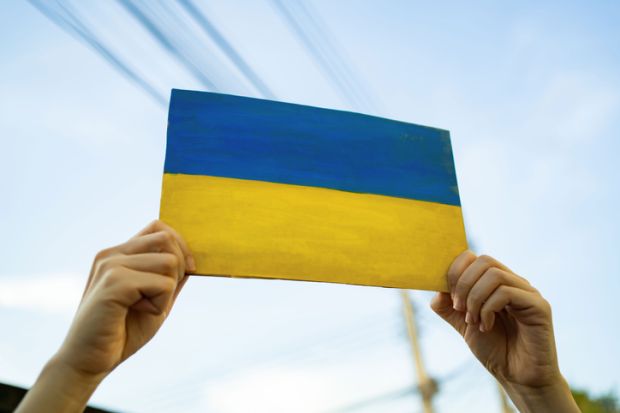The UK is cutting the bulk of its research ties with Russia, according to the Westminster government, which also announced a £3 million fellowships programme for Ukrainian refugee researchers.
Ministers said on 27 March that the government was “halting funding to all research programmes found to have links to Russian state and institutional collaborators”, and “will stop all ongoing projects where they provide a direct benefit to the Russian regime”. The UK will also not fund any new collaborative projects with Russia following its invasion of Ukraine.
The government stressed that the measures were “targeted towards the Russian state, as well as individuals and organisations with strong links to the Kremlin”, “not at individual Russian researchers and students, whom in many cases may oppose the actions of the Kremlin”.
A “small number” of other existing collaborations remain under review, “in order to further assess and ensure no future payments to institutions or individuals have any way of benefiting the Russian regime”. The measures were designed to avoid “disrupting benign innovators or projects with global benefits”, the government said.
The country’s main funder, UK Research and Innovation, had previously frozen all payments to grants involving scientists in Russia, pending the government announcement. Almost 50 grants, worth tens of millions of pounds in total, were affected.
UK institutions are being asked to review any additional financial or academic ties with Russia that are not publicly funded. Ministers added that they “expect” universities to “quickly” revoke honorary degrees awarded to Russian individuals who have recently been sanctioned.
Alongside the action against Russia, the government has announced a Researchers at Risk Fellowship Programme, with a £3 million budget, to support Ukrainian researchers fleeing the conflict as well as those already in the UK who are unable to return home.
The fellowships will cover salary, research and living costs at UK research institutions for up to two years, across all disciplines. They will be made available to postdoctoral researchers or those with “equivalent experience”, aiming “to support Ukraine in preserving its research ecosystem”, ministers said.
George Freeman, the science minister, said the UK was “taking a stand for science as a force for good and supporting Ukrainian researchers to come to the UK”.
“We will always support science where it is working to further international knowledge and discovery and to find solutions with global benefit, but it is only right that we take a stand against the Kremlin’s illegal invasion of Ukraine and the deplorable Putin regime,” he said.
The government added that it was exploring ways for UK universities to partner with Ukrainian institutions in order to teach Ukrainian students who are close to graduating remotely, supporting them to complete their studies.
Michelle Donelan, the higher education minister, said she believed that the new measures would have strong support in the university sector.
“We are asking universities that have not yet done so to review any financial or academic research ties with Russia given the horrors the Kremlin is inflicting on the Ukrainian people,” she said.
“All universities should always carefully consider awarding honorary degrees, and we specially expect those awarded to sanctioned Russian individuals to be quickly revoked to demonstrate that we stand united with Ukraine.”
Information about the Ukrainian fellowship scheme will be made available soon through the British Academy.
Other major European research nations, including the Netherlands and Germany, have previously frozen ties with Russian institutions.
Register to continue
Why register?
- Registration is free and only takes a moment
- Once registered, you can read 3 articles a month
- Sign up for our newsletter
Subscribe
Or subscribe for unlimited access to:
- Unlimited access to news, views, insights & reviews
- Digital editions
- Digital access to THE’s university and college rankings analysis
Already registered or a current subscriber? Login








